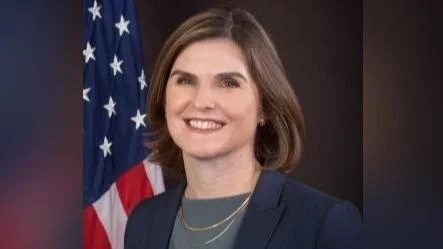The Vatican's Synod on Synodality is focused on understanding and practicing synodality within the church, rather than resolving specific controversial issues. This was highlighted by Julia McStravog, senior adviser for the U.S. Conference of Catholic Bishops (USCCB) on the synod. McStravog emphasized that while some may be disappointed by the lack of resolutions, the synod aims to prepare for addressing such questions in the future.
Last year's meeting of the 16th Ordinary General Assembly of the Synod of Bishops drew attention to topics like seminary formation changes, women's ordination possibilities, and ministry expectations for LGBTQ-identifying Catholics. Although these topics were noted in preparatory documents, Pope Francis assigned them to study groups earlier this year, removing them from this year's assembly discussions. The study groups presented their progress on October 2nd, with their work expected to conclude in June.
McStravog explained that these issues serve as mechanisms to explore what synodality means. "They’re incredibly important questions," she said, noting that each could warrant its own consultation process.
Regarding women's ordination as deacons, Cardinal Víctor Manuel Fernández stated that Pope Francis does not see the question as mature yet. He emphasized that deeper issues need resolution before considering a diaconate for women.
McStravog views synodality as a tool for constructive engagement with complex issues. She noted that understanding synodality is still developing within the church and described it as a cultural shift.
Richard Coll, executive director for Justice, Peace and Human Development at USCCB and a lay delegate at the synod, shared his experience from the first meeting. He stressed refining the understanding of synodality and implementing its benefits across church life.
Although the synod concludes on October 27th, McStravog asserted that "synodality is not over." Implementation depends on pastors and bishops embracing it to engage parishioners effectively.
Coll highlighted varying levels of interest in synodality among U.S. parishes and identified challenges in fostering support for those eager to participate in a synodal experience.
Cardinal Mario Grech described the synod as "essentially a school of discernment" during his opening comments on October 2nd. He defined ecclesial discernment as listening to one another to hear what the Spirit says to the church.
McStravog concluded by emphasizing shared responsibility between clergy and laypeople for practicing synodality within the church.
 Alerts Sign-up
Alerts Sign-up






